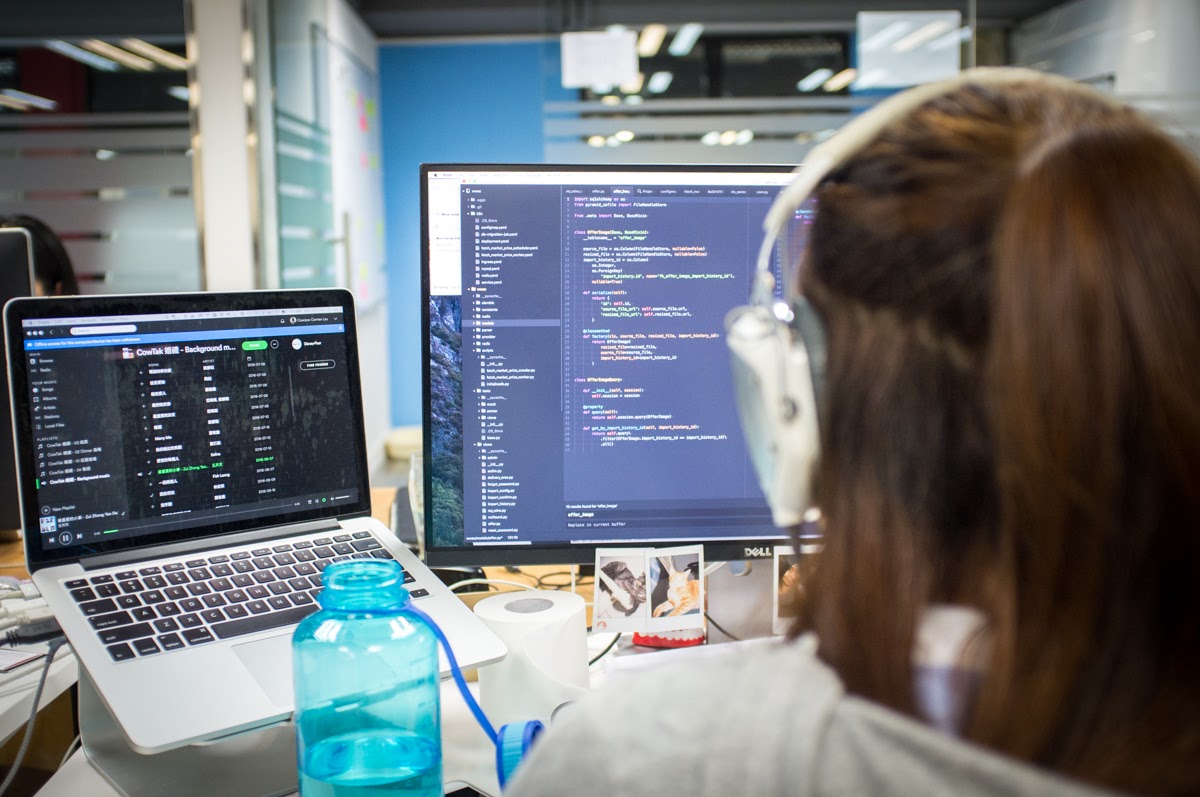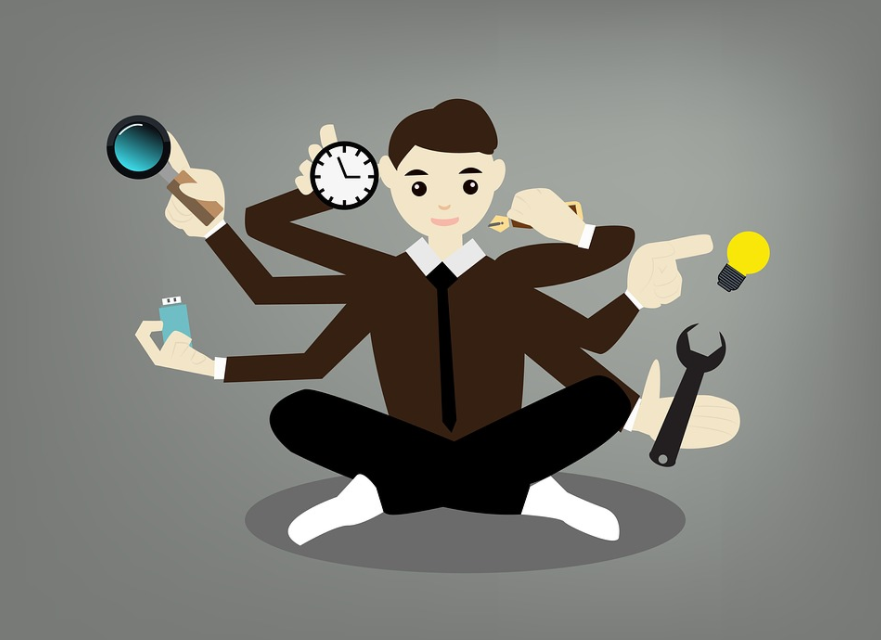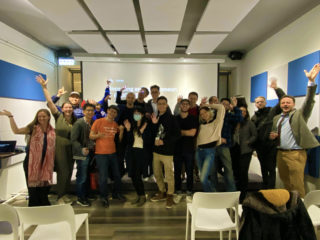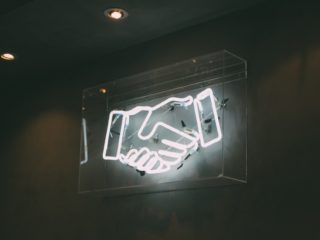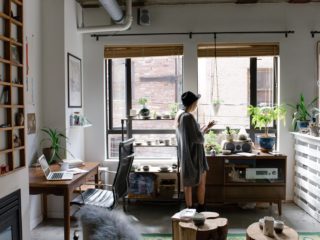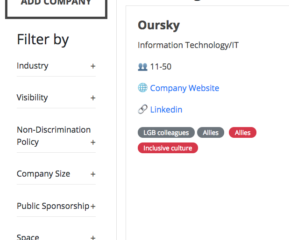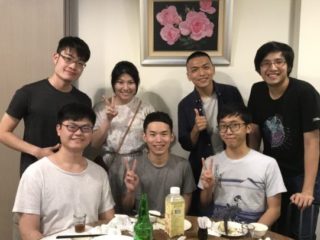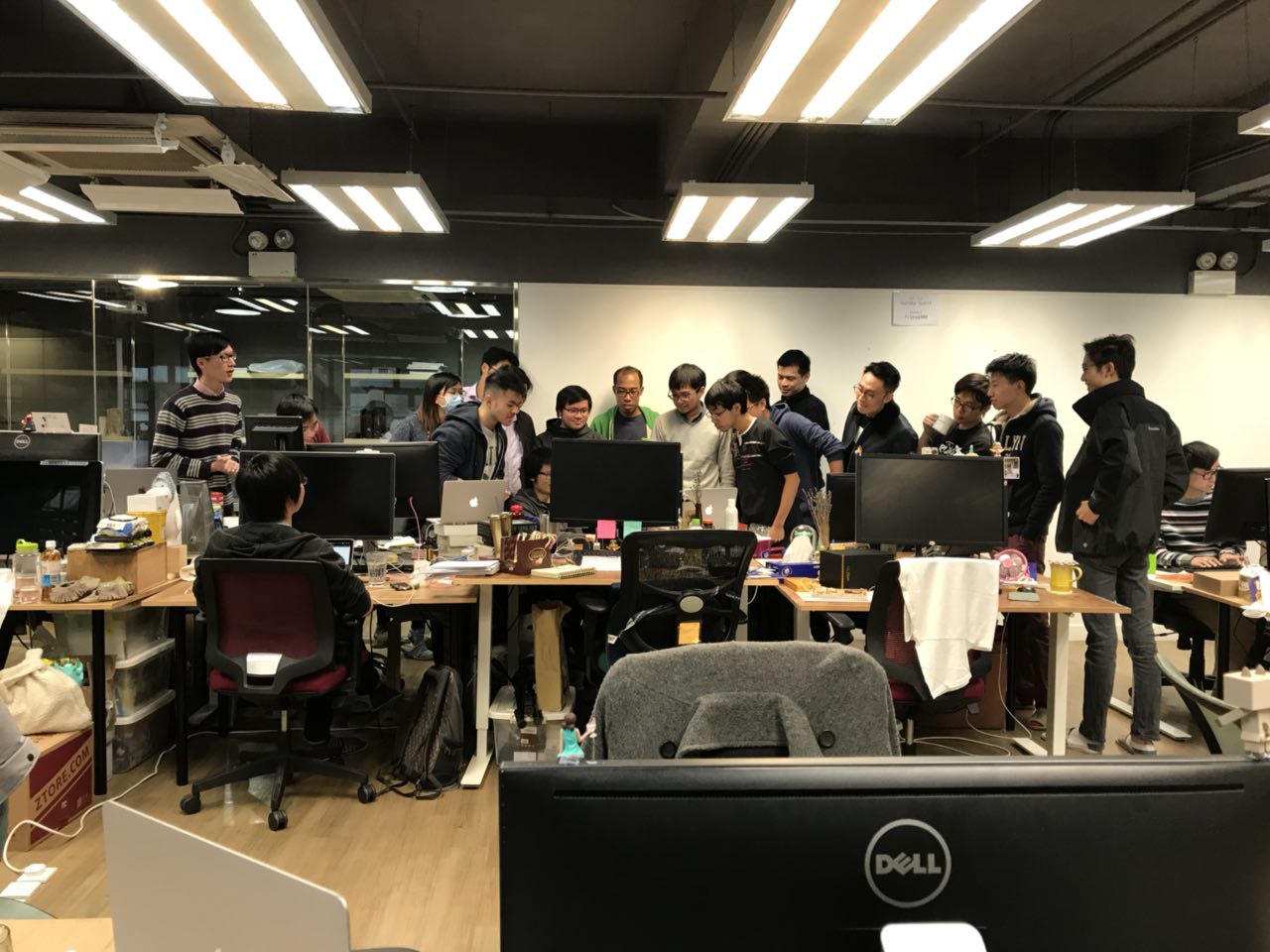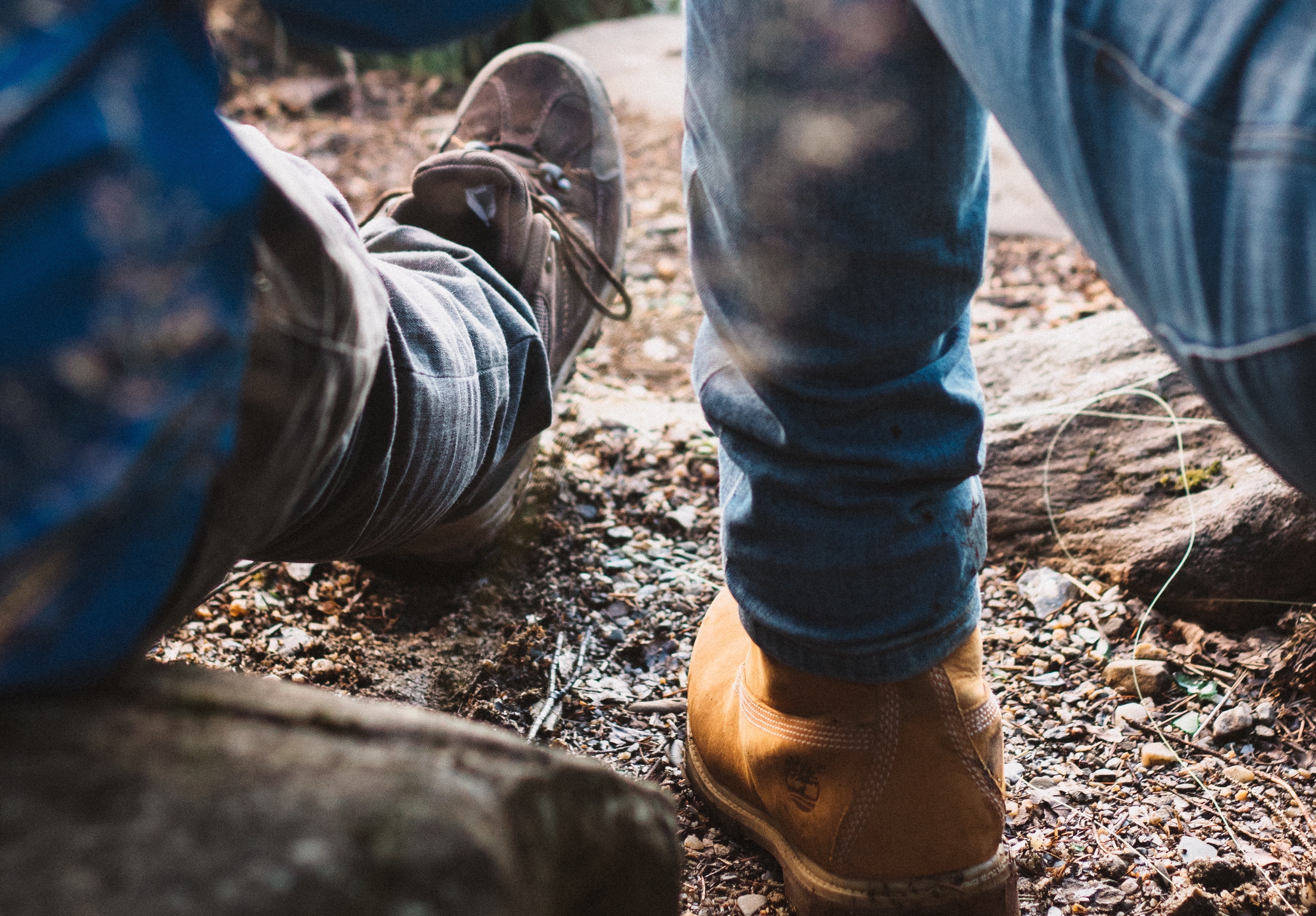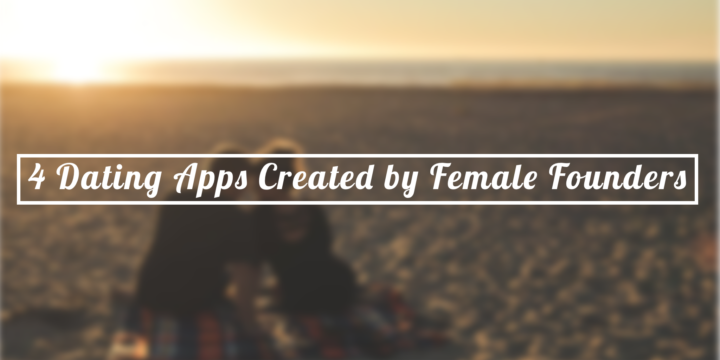
Seeing as November 30th marks the social media campaign celebrating Women’s Entrepreneurship Day, we here at Oursky wanted to celebrate this global campaign by showcasing cool apps with female founders. Dating apps being as popular as they are nowadays (who would have though “swipe right” would become a household saying?), we suddenly asked ourselves how many were founded by women.
Because — let’s face it — the most successful apps like Tinder, Match or Badoo, were mostly founded by men and aren’t always what women are looking for.

So, we did a bit of digging to find the ones that were founded by women. What made these apps any different? Why did they feel the need to create something in an already crowded market? Most of them have experiences that informed their hypotheses and approaches to their dating apps. Find out what they’re like below!
Whitney Wolfe: Bumble (and Tinder)
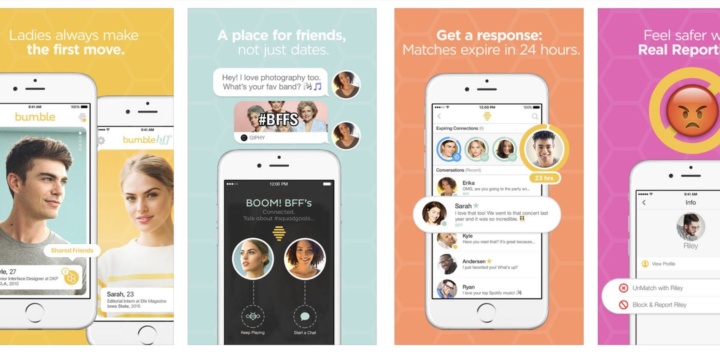
One woman co-founded not one but two dating apps. Whitney Wolfe, the only woman co-creator among the otherwise male-dominated team behind Tinder, left the company on allegations of sexual harassment. She went on to create the app Merci, which was a free social networking platform for young girls to chat and spread female positivity. Merci caught the attention of Andrey Andreev, founder and CEO of the multi-billion dollar social network, Badoo, who encouraged her to go back into the dating space and found Bumble, the “100% feminist” dating app.
“Feminism is not about girl power. It is about equal power.” – Whitney Wolfe on Cosmopolitan
Among its many features, most prominently distinguishing Bumble from the pack is its women-message-first policy. By not allowing men to message first, Bumble provides much more of an opportunity for women to set the tone of the interaction, and ultimately, the overall relationship while also releasing men from the pressure to initiate the chat. The app has also introduced a BFF option for people who want to meet new friends.
Arum, Dawoon and Soo Kang: Coffee Meets Bagel
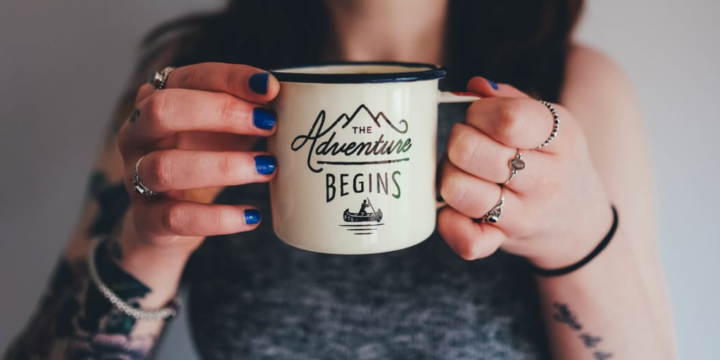
If a multi-billionaire offered you $30 million dollars for your three-year-old company, would you take it? Well Arum, Dawoo and Soo Kang, three sisters from New York and co-founders of the dating app, Coffee Meets Bagel, did no such thing when prompted by Mark Cuban on the TV show Shark Tank– the largest amount ever offered in the show’s history.
Meaningful relationships are the name of the game for the San-Francisco-based Kang sisters, setting their product apart from the competition with features like significantly limiting the amount of matches (called “bagels”) a user can get each day. The app actually began as a daily e-mail matching service where people could exchange phone numbers only after both parties indicated interest. The limited selection focuses users much more on the quality of the relationship as opposed to simply the amount of interactions. Some would even call it the anti-Tinder.
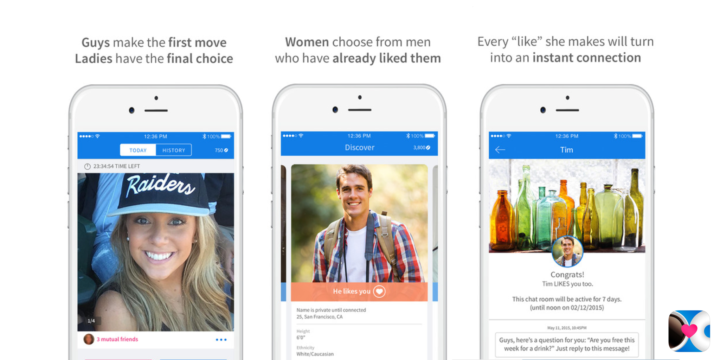
Inspired by their father’s self-employed lifestyle, the three sisters always wanted to create something of their own. Arum is a Harvard business graduate with a track record at both Avon and Amazon. Dawoon is a Stanford business graduate with global experience in everything from marketing to research and development, and Soo is a graduate of the Parsons School of Design and having lent her expertise to such companies as Samsung and Harajuku, the creation of an innovative product like Coffee Meets Bagels seemed inevitable. While all the sisters co-founded CMB, it was actually Soo’s experience traversing through New York city as a single woman that originally sparked the idea. The daily bagels people receive has increased to 21 since the release of the mobile app.
Robyn Exton: Her (formerly Dattch)
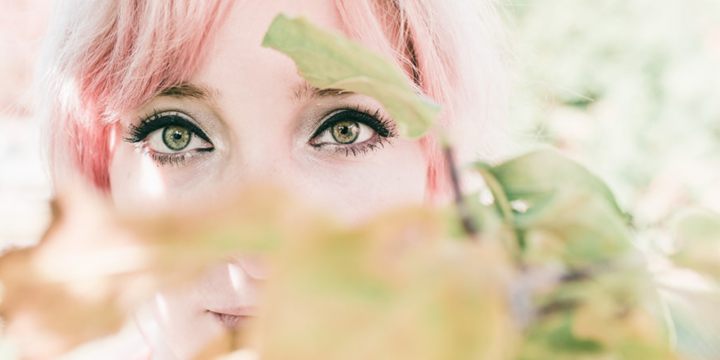
Moving ours sights to the LGBTQ community is Her– the go-to app for the lesbian, bisexual and queer community. After becoming tired with existing lesbian dating sites, which she felt to be simply be “dating sites that were initially created for gay men, and tuned pink for lesbians”, Robyn Exton quit her job at a London-based advertising agency to develop the dating app she wanted. Exton moved in with her father and began learning how to program, working in a pub evenings and weekends, and used the business knowledge obtained in her previous job– a client of her company at the time being a dating website developer– to guide her along the way.
While the original focus for Dattch was simply dating, Her is focused on community has evolved to also act as a localized message board for nearby LGBTQ events and providing its users with the ability to connect with local groups, meet friends, and have discussions on a given topic. The app also has many preference options than traditional dating apps, such as bisexual, bi-curious, fluid, pansexual, and asexual.
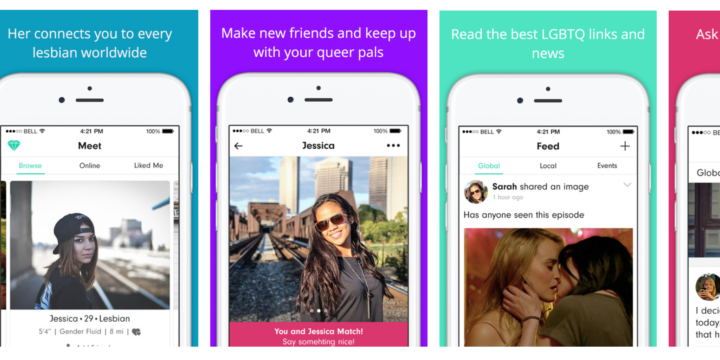
Fun fact 1– when initially marketing Her to the public, Exton used such strategies as going to clubs and providing free photo shots in exchange from app downloads, and waiting outside of bathrooms at LGBTQ concerts and festivals with Her-imprinted toilet paper. Talk about creative!
Fun fact 2 – Exton is also a founding member of Geek Girl Meetup!
Amanda Bradford: The League
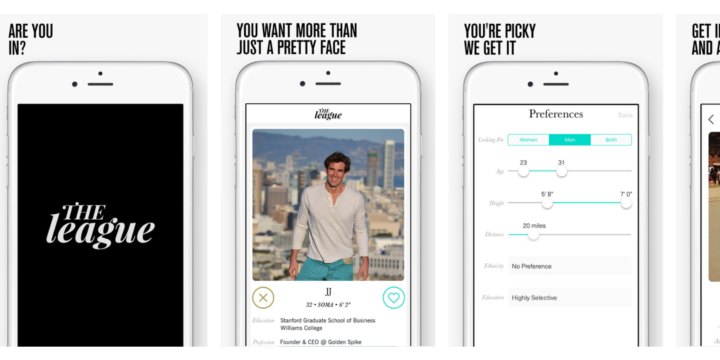
Out of Stanford University erupted Amanda Bradford and her innovative dating app, The League. Fresh out of a serious five-year relationship and with an MBA in-hand, Bradford sought to create a dating service dedicated to working, egalitarian-seeking professionals such as herself.
By linking user’s profile to their Linked In portfolio, The League handpicks its users on the basis of their portfolio, putting those unable to meet the criteria on a waiting list. The app was originally founded in Boston and is only opening in cities with 5000+ waitlisted members. Members can pay to jump the que and remaining waitlisted users can chat in an open forum.
While some people argue this feature to be elitist, cherishing educational background and social status over personal character, Bradford has been quick to denounce such claims, highlighting her own academic and financial struggles. Her responses made us think of this popular singles meme:
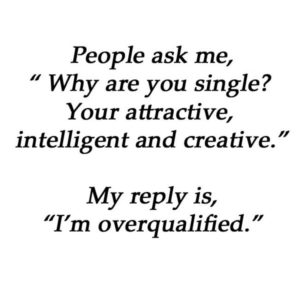
While the dating market may still be proportionally male dominated, with a reported 60% of dating app users being male, the ever-growing amount of women entrepreneurs in the field of online dating are well on their way to evening that out. Women know women best, and seeing as the user experience of a product tends to be driven by the majority of people using it, in this case young men, its up to women like those listed above to craft an online dating experience better suited to the actual needs of women.
Help support your women entrepreneurs come November 30th by using the hashtag, #choosewomen, and as always, feel free to drop us a line in the comments below with your opinion!
This post was co-written by Sam Elsley, Oursky’s Writer Intern, and Athena Lam from Oursky’s content team.

